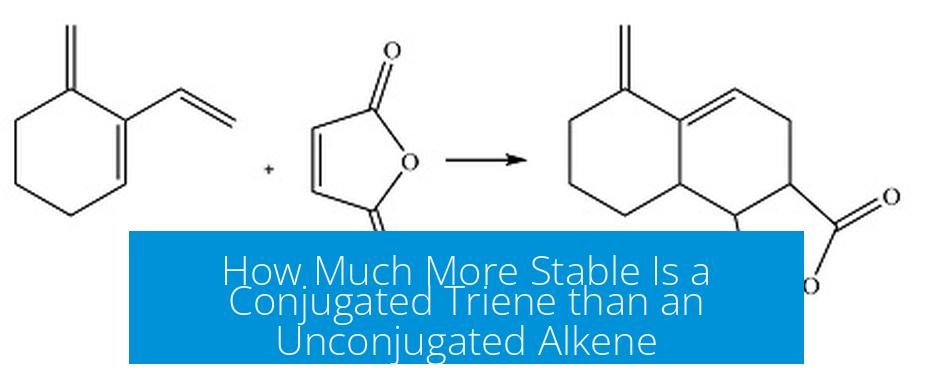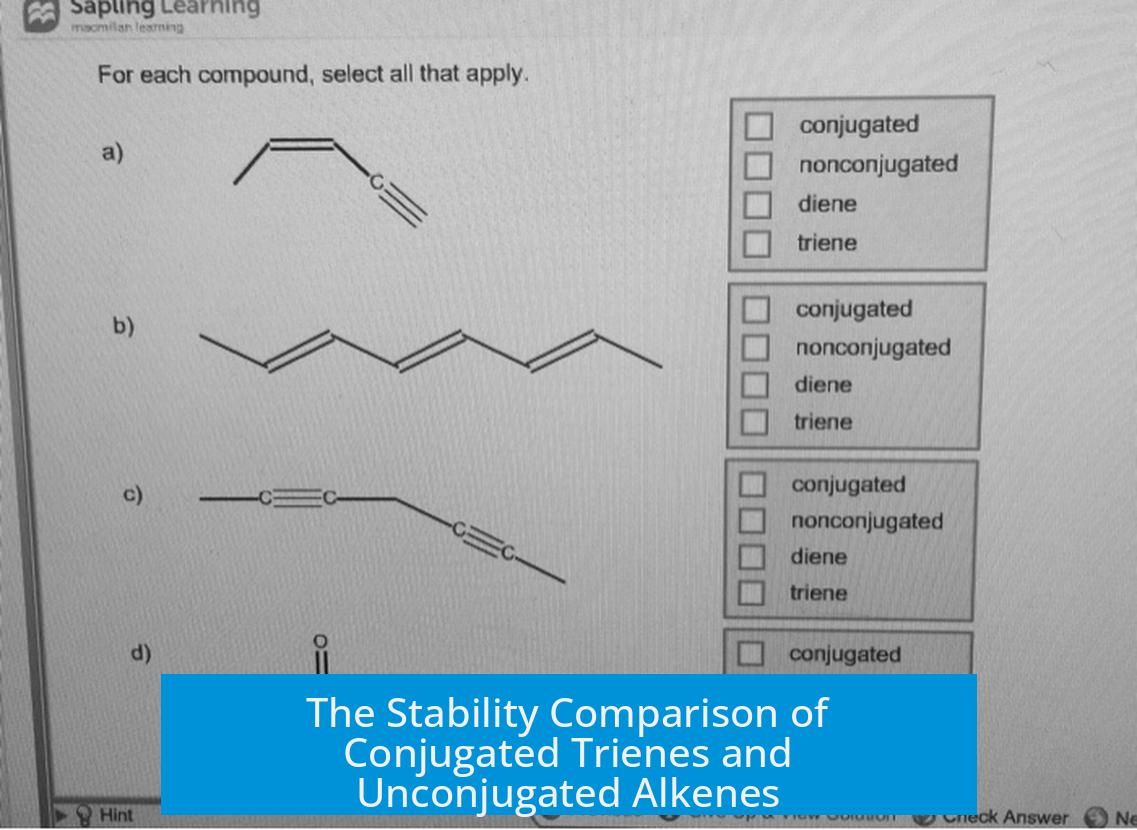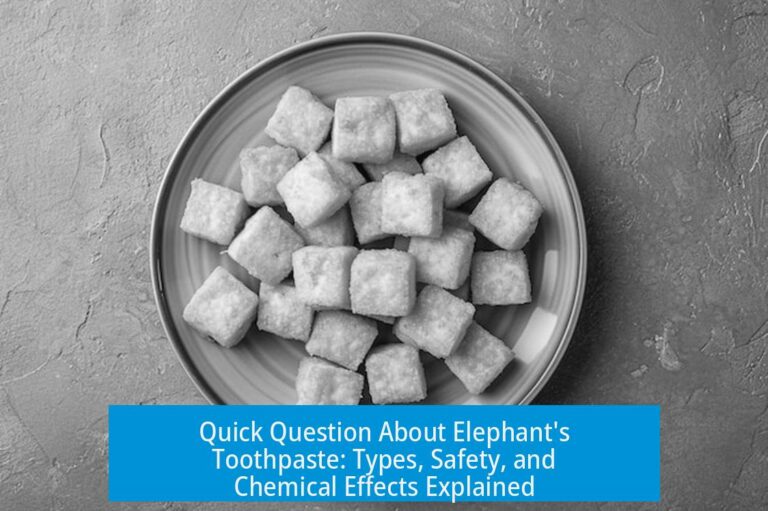How Much More Stable Is a Conjugated Triene than an Unconjugated Alkene?

Conjugated trienes are thermodynamically more stable than three isolated double bonds in unconjugated alkenes, mainly due to electron delocalization across their alternating double bonds.
Thermodynamic Stability of Conjugated Trienes
Conjugated trienes feature a system of alternating double bonds. This setup allows π-electrons to delocalize over the entire conjugated chain. Electron delocalization lowers the overall energy of the molecule, thus increasing its thermodynamic stability compared to isolated double bonds.
Multiple studies confirm that the energy of a conjugated triene is lower than that of three separate, non-conjugated alkenes. The stabilization energy derives from resonance and electron sharing, which isolated alkenes lack.
Molecular Orbital Effects on Stability and Reactivity
The increased stability relates to molecular orbital phenomena. A conjugated triene has a higher Highest Occupied Molecular Orbital (HOMO) and a lower Lowest Unoccupied Molecular Orbital (LUMO) than an isolated alkene.
- Higher HOMO energy facilitates electron donation in reactions.
- Lower LUMO energy makes electron acceptance easier, although this is less common.
This band gap narrowing enhances both stability and reactivity. Conjugated trienes react more readily in certain processes but remain more stable due to delocalized electrons.
Comparing Reactivity with Unconjugated Alkenes
Despite increased stability, conjugated trienes are more reactive in some reactions. For example, selective epoxidation of one double bond in a conjugated diene (and by extension triene) with mCPBA occurs faster than in isolated alkenes.
This selectivity supports that conjugated trienes behave as a unique functional group. Their electron distribution affects how electrophilic or nucleophilic species interact with them.
| Property | Conjugated Triene | Unconjugated Alkene |
|---|---|---|
| Thermodynamic Stability | Higher due to electron delocalization | Lower, isolated double bonds |
| HOMO Energy | Higher | Lower |
| LUMO Energy | Lower | Higher |
| Reactivity | More reactive in certain electrophilic additions | Less reactive in these contexts |
Key Points to Remember
- Conjugated trienes gain stability from π-electron delocalization.
- They have a higher HOMO and lower LUMO than unconjugated alkenes.
- This molecular orbital arrangement increases both stability and selective reactivity.
- Conjugated trienes act as distinct functional groups chemically.
- Exact quantitative energy differences vary but stability improvements are clear.
How does conjugation affect the stability of a triene compared to isolated double bonds?
Conjugation delocalizes π-electrons over the triene. This spreading of electrons lowers overall energy. Thus, a conjugated triene is thermodynamically more stable than three isolated double bonds.
Why are conjugated trienes more reactive despite being more stable?
The key is in molecular orbitals. Conjugated trienes have higher HOMO and lower LUMO than isolated alkenes. This allows easier electron donation and acceptance, increasing their reactivity.
Can conjugated trienes undergo selective reactions that isolated alkenes cannot?
Yes. For example, epoxidation can occur on a single double bond of a diene using stoichiometric mCPBA. This selectivity shows the unique reactivity due to conjugation.
Is a conjugated triene considered the same functional group as a regular alkene?
No. Conjugated trienes act as distinct functional groups because their electronic structure differs significantly from isolated alkenes. This changes both stability and reactivity.
How much more stable is a conjugated triene quantitatively than an unconjugated alkene?
Exact energy differences are not given. However, it is clear conjugated trienes have greater thermodynamic stability than the same number of isolated double bonds.





Leave a Comment